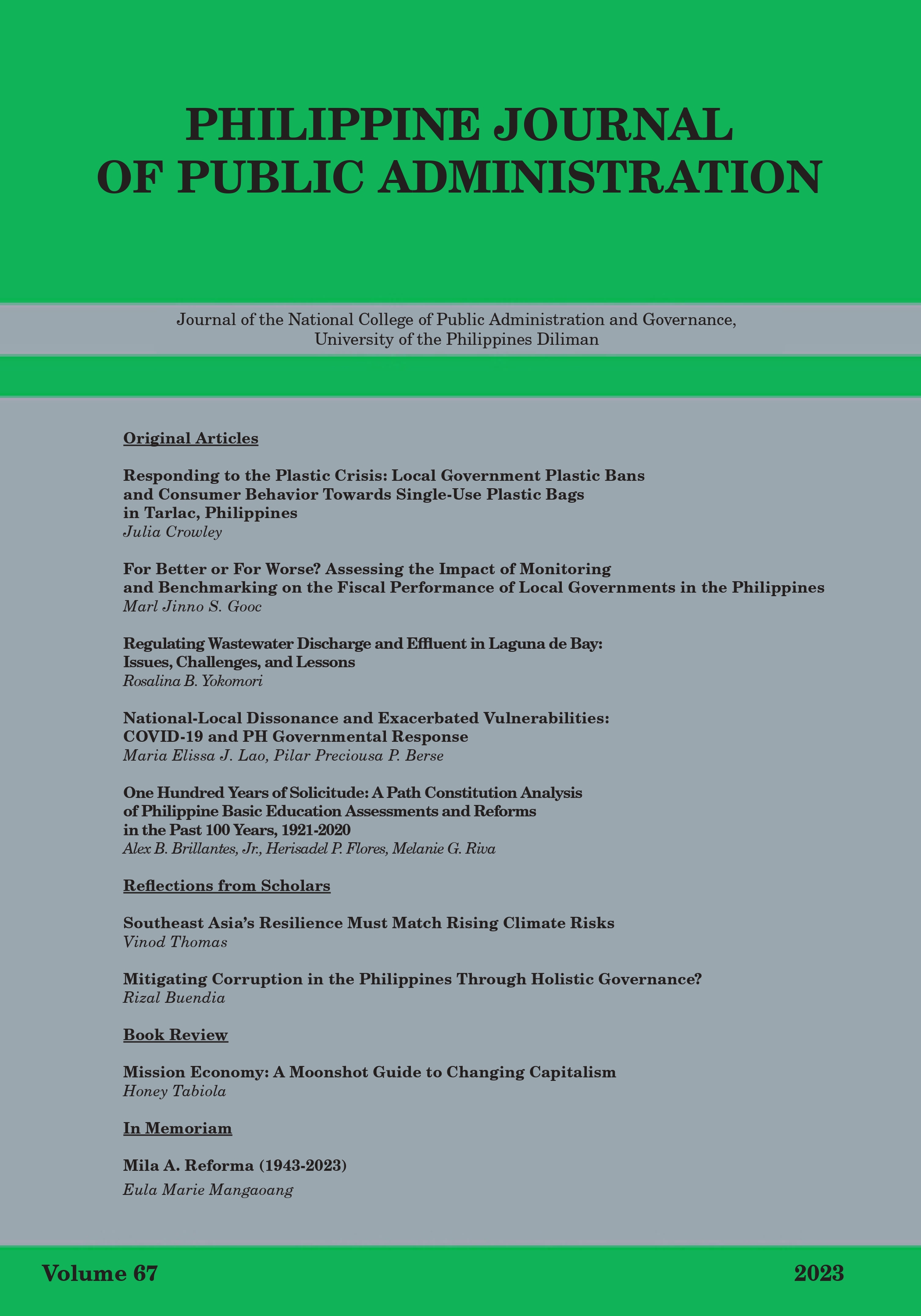Regulating Wastewater Discharge and Effluent in Laguna de Bay: Issues, Challenges, and Lessons
Abstract
Despite the existence of management and regulation in Laguna de Bay since 1966, the water quality of the lake continues to deteriorate. By mapping and examining the laws, policies, and tools employed in the last 50 years, the study reveals trends, characteristics, and changes over time; a multi-institutional regulators landscape; and the issues, challenges, and lessons of regulation. Moreover, conflicting policy frameworks, limitations of regulatory tools, and insufficient resources of regulators impede effective and efficient regulation. The study concludes that there is a weak or inadequate regulation of wastewater discharge and effluent in Laguna de Bay. Thus, it recommends a multi-pronged approach to addressing this weakness through regular review of policies; adoption of tools for adaptive change and innovation; a more collaborative and participative approach of regulation; and strengthening of regulators’ financial, personnel, and technological resources for effective and efficient regulation.

This work is licensed under a Creative Commons Attribution 4.0 International License.



